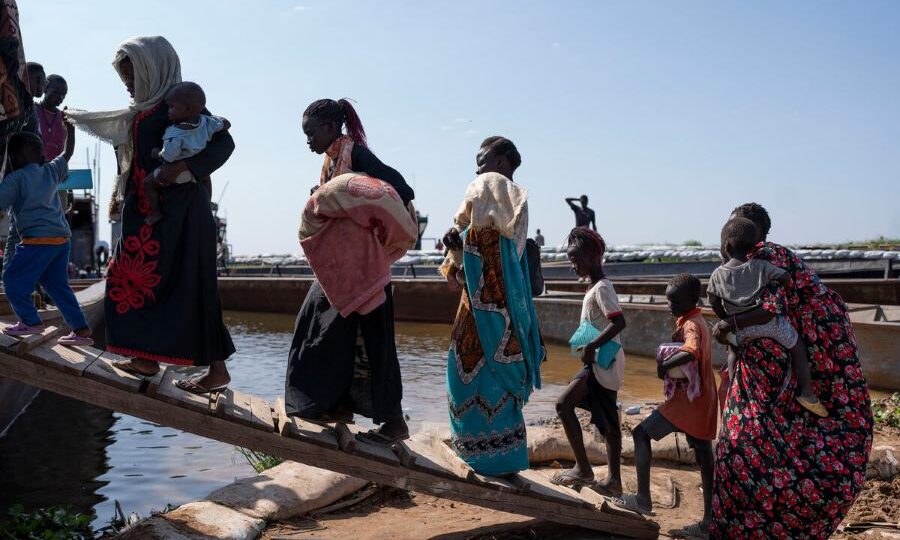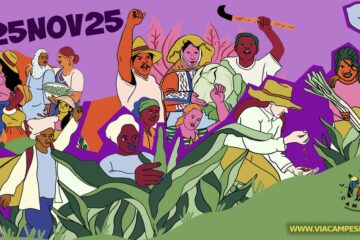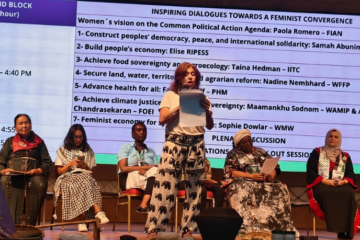Since April 2023, a violent civil war has been affecting Sudan in a battle for power and territory wagd between the Sudanese armed forces and the paramilitary group known as Rapid Support Forces (RSF). Since the beginning of this new phase of the conflict, more than 10 million people have been displaced and nearly 70 percent of the population is starving.
The history of civil wars in the country is not recent. Since the independence struggles, Sudan has experienced a number of internal conflicts, fed by foreign battles and interferences. The first civil war, between 1955 and 1972, marked the differences between the south and the north of the country, as southerners demanded more regional autonomy. Another conflict arose in 2003 and has been going on since then in Darfur, a region rich in natural resources like gold. The current war has erupted due to disagreements about the integration period for the RSF into the Armed Forces, as part of the unresolved demands of the 2018 Sudanese People’s Revolution.
This article compiles analyses presented during the activities “War in Sudan: Left-Wing Perspectives,” held by the International Peoples’ Assembly (IPA), Peoples Dispatch, and Madaar Magazine in July 2024 and “Mapping Out the Route of Forgotten African Conflicts” organized by the World March of Women South Africa in September.
Battle for Territories and Natural Wealth
Niamat Kuku, a member of the Central Committee of the Communist Party of Sudan and human rights activist, says the context before the war and in the transition period was of intense class struggle. “Those who were opposing the revolution were standing against all women, farmers, and all the other social segments except the Islamic politics,” Niamat argues. This anti-people opposition was strongly supported by foreign forces: “we were faced with the threats of foreigners forces, interference and intervention in Sudan, including the intervention of Egypt, and the Arab Emirates, countries that have huge interest in our resources.”
International interferences escalated as the Sudanese revolution was taking place, as part of the struggle was about national sovereignty over the country’s resources. “The geographical location of Sudan makes pathway towards the Mediterranean or to the Atlantic Ocean. We have a great reserve of fresh water, fertile agricultural land, minerals, uranium, gold, silver, even the quality of our sand is great. We have a diverse population, and a great humanitarian heritage and civilizations. All of these are elements that make Sudan interest of many regional and international forces,” Randa Mohammed, a member of the Sudanese Women’s Union.
Revolutionary forces and organizations have been denouncing the ongoing coup since late 2021. The characteristics of the war have become clearer as more and more weapons were brought in from abroad. “This is not purely an economic war between two generals, and it is not also a conflict between a national general and external powers, but it is a conflict led by external agendas that are manipulating the social environment. We are surrounded by countries and governments that are totally against having a democratic new government in Sudan,” Niamat adds.
Attacks on Health Care Institutions, Impacts on People’s Lives
Doctor Ihisan Fagiri, also a member of the Sudanese Women’s Union, said the ongoing violent war essentially attacks the Sudanese people that foght in the December 2018 revolution. Since then, both sides have committed crimes against humanity, which caused great impact, especially on the country’s already fragile health care system. “Our health sector was weakeaned by the International Monetary Fund which led to drying of the hospitals from resources, closure, and privatization of all health services,” Ihisan says.
After the war broke on April 15th, 2023, the impact on health care institutions was very serious, as most hospitals were taken over by militia groups or destroyed by the army. According to the preliminary report by the Doctors’ Union Committee, introduced by Ihisan during the World March of Women activity, during the first two weeks of war in the capital Khartoum, more than 70 percent of the hospitals were out of service or destroyed. “The first hospital occupied by the militia was the Omdurman maternity hospital. This gives us a clue about their mentality toward women and their health, and how women are paying the bill of this war,” Ihisan Fagiri denounces.
The deterioration of Sudan’s health care has been exacerbated by several other factors, including the shortage of drinking water, inappropriate basic sanitation, and lack of basic hygiene. The situation became wors during the catastrophes aggravaded by the climate crisis, including heavy rains and floods, which have destroyed houses and left many people homeless, increasing the spread of diseases like diarrhea, malaria, dysentery, typhoid fever. Not only that, the country’s population is also struggling with power blackouts and the lack of proper treatment for the bodies of the victims of the conflict.
Omayma Elmardi, of the WMW Sudan, spoke about the impacts of the war for different ethnic groups, and Sudanese women and girls. “The war has caused mass displacements, killings among civilian refugees, destruction of public institutions, markets, hospitals, and properties. Women and girls fear for their personal safety in conflict zones and are subjected to all kinds of violence, lack of health care services, food, safety, and protection.”
Forced Migration
Women and their families have been forced out of their homes to flee from the violence. They have been supported by resistance committees made up of different entities that organize, for example, food distritbution. “But humanitarian support is very scarce and low. The United Nations Organization says that they are providing humanitarian assistance for five million people, but at least 15 million are still in need of a humanitarian support and now 25 million, out of the 47 million from the overall population in Sudan, are at risk of famine and suffering from malnutrition and hunger. In the Zamzam camp, every one hour, two children die,” Randa Mohammed denounces.
The internal displacement of millions of people due to the violence has resulted in a flow of refugees that overcrowd the few health care institutions that still work in some areas, depleting resources and making it harder to meet the huge populational demand.
Refugee camps overflow beyond the borders of the country as Sudanese people look for asylum in neighboring countries. In Egypt, which is already sheltering hundreds of people in exile, the government has preventing lawyers from providing aid for new asylum applications. In Ethiopia, the rise in Sudanese migration has increased the already existing migration crisis in the country, which is also where migrants fleeing from other conflicts in the region are finding shelter.
The lives of women who, around the world, face war or dictatorships was the point for reflection during both activities, when sisters from Sudan expressed their unbounded solidarity with the women who resist the ongoing conflict and war in Palestine and the Democratic Republic of Congo. As Ihisan said, “usually, during any conflict, swords are turned towards women who pay the price of war through killing, displacement and rape.” In face of that, feminism must be powerfully positioned in the struggle against war, genocide, and armed conflicts driven by imperialist greed, destroying lives and communities. Ihisan adds: “We need to stop this war and to have safe and secure passage and pathways for delivering medicine and food. The Sudanese Women’s Union stands for the participation of women on all steps for restoring peace. This is the most important step to stop the war.”




